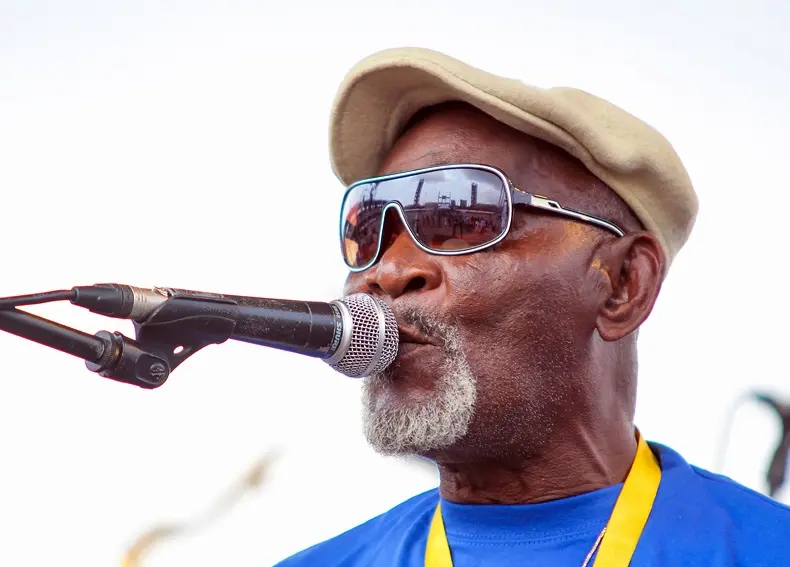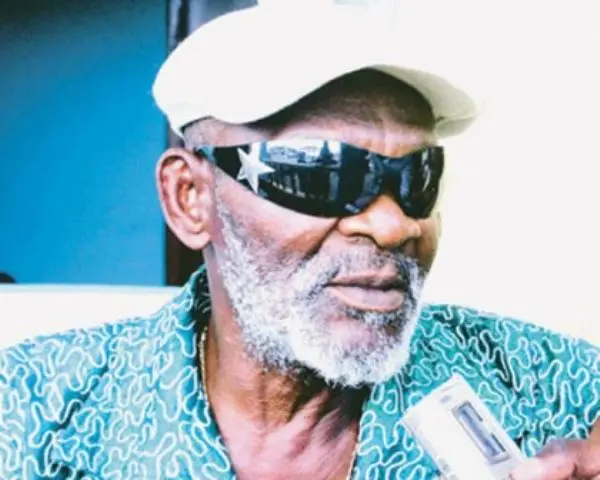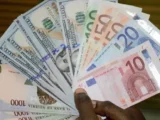
Fatai Rolling Dollar Bio: Children, Age, Wife, Net Worth, Family, Parents, Songs, Albums, Death
Biography
Fatai Rolling Dollar (born Olayiwola Fatai Olagunju on July 22, 1927, in Lagos, Nigeria) was a pioneering Nigerian jùjú and highlife musician, guitarist, percussionist, singer, and songwriter whose career spanned over six decades.
Hailing from a royal Yoruba family in Ede, Osun State, he earned his nickname in school by rolling a silver dollar coin for football tosses.
Trending Now!!:
Starting in 1953 with the Blue Spots band, he formed his own group, Fatai Rolling Dollar & His African Rhythm Band, in 1957, blending traditional rhythms with guitar and agidigbo thumb piano.
A nationally celebrated figure who mentored emerging artists, he released hits like those on his late-career albums Fatai Rolling Dollar Returns (2010) and Better Life (2011). Father to 15 children, he passed away on June 12, 2013, in Lagos at age 85, leaving an indelible mark on Nigerian music.
| Nigerian singer | |
| Fatai Rolling Dollar | |
|---|---|
 | |
| Wiki Facts & About Data | |
| Real Name: | Olayiwola Fatai Olagunju |
| Stage Name: | Fatai Rolling Dollar |
| Born: | 22 July 1927 (age 85 years old) |
| Place of Birth: | Ede, Osun State, Nigeria |
| State Of Origin: | Osun State |
| Died: | 12 June 2013 (age 85 years), Lagos, Nigeria |
| Nationality: | Nigerian |
| Education: | N/A |
| Height: | N/A |
| Parents: | Mr. and Mrs. Olagunju |
| Siblings: | N/A |
| Spouse: | Olaitan Olagunju (m. ?-2012), Zainab Olagunju (m. ?-2013), Bunmi Akinbo (m. 2011-2013) |
| Girlfriend • Partner: | Not Dating |
| Children: | Jamiu Olagunju, Funmi Olagunju, Mojeed Olagunju, Nimota Olagunju, Adejumoke Badmus, Adewumi Olagunju |
| Occupation: | Musician • Percussionist |
| Net Worth: | $500,00 (USD) |
Early Life & Education
Fatai Rolling Dollar, born Olayiwola Fatai Olagunju on July 22, 1927, was a renowned Nigerian jùjú and highlife musician. He was born in Lagos, Nigeria, specifically in the Ede area of what is now Osun State.
Fatai hailed from a royal Yoruba family, belonging to the Yoruba ethnic group, which is one of the largest ethnic groups in Nigeria, known for its rich cultural heritage and musical traditions.
Details about Fatai‘s parents and siblings are scarce, as he rarely spoke publicly about his immediate family background in available records. However, his royal lineage in Ede suggests a family of some prominence within the Yoruba community.
Given his Yoruba heritage and the cultural context of his music, Fatai Rolling Dollar likely engaged with a blend of traditional Yoruba spiritual practices and possibly Christianity or Islam, which are common among the Yoruba.
Fatai‘s early education took place in Lagos, where he attended a local school. It was during his school years that he earned the nickname “Rolling Dollar” due to his habit of rolling a silver dollar coin for football tosses, a moniker that stuck with him throughout his illustrious career.
His formal education was modest, as was typical for many in colonial Nigeria during the 1930s and 1940s, and he gravitated toward music early on, showing a natural aptitude for rhythm and performance.
Fatai’s early exposure to music came through the vibrant cultural scene in Lagos, where traditional Yoruba music, palm-wine music, and emerging highlife sounds were prevalent. By the early 1950s, he began his musical journey, joining the Blue Spots band in 1953, which marked the start of his professional career.
Career
Fatai Rolling Dollar, born Olayiwola Fatai Olagunju, was a trailblazer in Nigerian jùjú and highlife music, with a career that spanned more than six decades. His musical roots trace back to the early 1950s in Lagos, where he immersed himself in the city’s dynamic soundscape — drawing inspiration from Yoruba traditional rhythms, palm-wine music, and the emerging highlife genre.
In 1953, he joined the Blue Spots Band, a well-known highlife group, marking his official entry into professional music. This period helped him refine his skills as a guitarist, percussionist, and vocalist.
By 1957, Fatai founded his own band, Fatai Rolling Dollar & His African Rhythm Band, where he pioneered a unique fusion of jùjú and highlife. His music featured melodic guitar lines, Yoruba percussion, and the distinctive agidigbo (thumb piano).
With this sound, his band rose to national prominence throughout the 1960s and 1970s, performing at major social gatherings and becoming a household name. His dynamic stage presence and innovative style set him apart in Nigeria’s music scene.
Although he experienced a decline in popularity during the 1980s and 1990s due to shifting musical trends, Fatai made a remarkable comeback in the early 2000s.
Rediscovered by younger audiences and contemporary musicians, he gained renewed popularity and even international recognition. He released the album Fatai Rolling Dollar Returns (2010), followed by Better Life (2011) — both of which reintroduced his classic sound to modern listeners while preserving its authenticity.
Fatai Rolling Dollar was also celebrated as a mentor, guiding upcoming musicians and preserving the traditions of jùjú and highlife. Known for his energetic performances and soulful vocals, he continued performing well into his later years.
He passed away on June 12, 2013, at the age of 85, leaving behind a powerful legacy. His music remains revered for its cultural richness, innovation, and timeless charm.
Personal Life
Fatai Rolling Dollar, born Olayiwola Fatai Olagunju on July 22, 1927, passed away on June 12, 2013, at the age of 85 (he would have turned 86 just over a month later).
Some sources cite his birth year as 1926, making him 86 at death, but July 1927 is more consistently documented across biographies. As a devout Muslim, Fatai embraced polygamy in line with his faith, fathering children with multiple partners.
He had at least four significant relationships that produced offspring, though exact marriage counts are not precisely recorded. His first wife, whose name is not widely specified in records, died in 1999 from poverty-related ailments during a difficult period in his life.
He also lost five children from this union to illness amid financial struggles in the late 1970s. Another wife, Olaitan Olagunju, passed away in November 2012 after months in the hospital, reportedly due to complications from a firework injury to her leg during a pre-Christmas incident.
Zainab Olagunju, one of his widows, survived him and confirmed his death; she herself died in February 2025 at age 59, having faced hardships raising their sons after his passing. At 85, in 2011, Fatai married Bunmi Akinbo, an actress, in a union that highlighted his enduring vitality.
Fatai was a prolific father, blessed with 15 children by the time of his death, including Jamiu Olagunju, Funmi Olagunju, Mojeed Olagunju, Nimota Olagunju, Adejumoke Badmus, and Adewumi Olagunju; he welcomed a 16th child shortly before passing.
His family life was marked by resilience, as he often credited his large brood as a source of joy and legacy.
Regarding his death, Fatai succumbed to complications from lung cancer after a brief illness. He had returned from a U.S. tour complaining of leg swelling and was admitted to a Lagos hospital, where his condition rapidly deteriorated.
Net Worth
Fatai Rolling Dollar, the legendary Nigerian jùjú and highlife musician, had an estimated net worth of approximately $500,000 at the time of his death on June 12, 2013.
His wealth was primarily derived from his six-decade music career, including performances, album sales like Fatai Rolling Dollar Returns (2010) and Better Life (2011), and royalties from his influential work.
Despite periods of financial struggle, particularly in the 1980s and 1990s, his late-career resurgence boosted his earnings through international tours and collaborations.
Discography
Albums
- Fatai Rolling Dollar Returns (2010)
- A comeback album featuring refreshed jùjú and highlife tracks, showcasing his signature guitar and agidigbo thumb piano style.
- Better Life (2011)
- A vibrant collection of songs blending traditional Yoruba rhythms with modern influences, cementing his late-career resurgence.
- Won Kere Si Number (Date Unknown, widely referenced)
- Contains one of his most famous tracks, “Won Kere Si Number,” a jùjú classic celebrated for its infectious rhythm.
Notable Singles and Tracks
- “Won Kere Si Number”
- A timeless hit that became a staple in Nigerian music, often cited as his signature song.
- “Bebe Alali”
- Another popular track showcasing his lyrical and percussive prowess.
- “Ori Mi Koni Buru”
- A reflective song blending Yoruba storytelling with highlife elements.
Contributions and Collaborations
- Early Work with Blue Spots Band (1953–1957)
- As a guitarist and vocalist, Fatai contributed to the highlife sound of this popular Lagos-based band before forming his own group.
- Fatai Rolling Dollar & His African Rhythm Band (1957 onward)
- Led his own ensemble, producing numerous live performances and recordings that defined the jùjú genre in the 1960s and 1970s.
- Mentorship and Live Performances
- Known for mentoring younger artists, Fatai performed extensively in Nigeria and internationally, especially during his 2000s resurgence, with tours in the U.S. and Europe.
- Collaborations in the 2000s
- Worked with contemporary producers and artists to revive his music, contributing to compilations and live events that introduced his work to new audiences.
NOTICE!! NOTICE!! NOTICE!!
At TheCityCeleb, we strive to provide accurate and up-to-date biographies and entertainment news, focusing on celebrities. Our editorial team researches information from reputable sources, including interviews, official statements, and verified media.If you spot an error or have additional details, please contact us at editor@thecityceleb.com. We value your feedback and are committed to maintaining trustworthy content.


